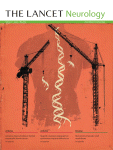 In a small percentage of patients with amyotrophic lateral sclerosis (ALS), also known as Lou Gehrig’s disease, a mutation in the SOD1 gene has been found to cause a familial or inherited form of the disease. This genetic link to ALS makes individuals that bear this mutation, ideal candidates to test exploratory new therapies that silence the SOD1 gene. With that in mind, researchers set out to test an experimental antisense oliognucleotide (ASO) that selectively lowers the mutant SOD1 gene in humans. The goal of this clinical trial was to assess the safety and tolerability of a single dose of the Isis ASO (ISIS-333611) that lowers the mutant form of the protein SOD1. Twenty-one ALS patients were enrolled sequentially in four different groups representing four single, yet escalating doses of the Isis ASO. Each group was comprised of 6 ALS patients and 2 placebo controls. While most patients (84%) reported some sort of adverse event such as headache or back pain, it was concluded the discomfort was due to the infusion procedure and not the study drug. They found that none of the study participants experienced any serious safety or tolerability issues related to the test ASO. This trial is the first clinical study of intrathecal delivery of an antisense oligonucleotide. ISIS 333611 was well tolerated when administered as an intrathecal infusion. Antisense oligonucleotides delivered to the CNS might be a feasible treatment for neurological disorders.
In a small percentage of patients with amyotrophic lateral sclerosis (ALS), also known as Lou Gehrig’s disease, a mutation in the SOD1 gene has been found to cause a familial or inherited form of the disease. This genetic link to ALS makes individuals that bear this mutation, ideal candidates to test exploratory new therapies that silence the SOD1 gene. With that in mind, researchers set out to test an experimental antisense oliognucleotide (ASO) that selectively lowers the mutant SOD1 gene in humans. The goal of this clinical trial was to assess the safety and tolerability of a single dose of the Isis ASO (ISIS-333611) that lowers the mutant form of the protein SOD1. Twenty-one ALS patients were enrolled sequentially in four different groups representing four single, yet escalating doses of the Isis ASO. Each group was comprised of 6 ALS patients and 2 placebo controls. While most patients (84%) reported some sort of adverse event such as headache or back pain, it was concluded the discomfort was due to the infusion procedure and not the study drug. They found that none of the study participants experienced any serious safety or tolerability issues related to the test ASO. This trial is the first clinical study of intrathecal delivery of an antisense oligonucleotide. ISIS 333611 was well tolerated when administered as an intrathecal infusion. Antisense oligonucleotides delivered to the CNS might be a feasible treatment for neurological disorders.
